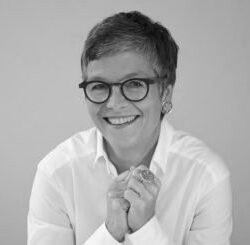Digital technologies shape our present and have an impact on both individual lifestyles and social coexistence. However, technical developments are not forces of nature – technology can be shaped. The lecture series provides food for thought on how to live (together) successfully in digital worlds.
The lecture series, organized by Prof. Dr. Susanne Hahn and Jonathan Seim as part of the Civic University, provides food for thought on how to shape individual lifestyles and coexistence in modern societies. It is the result of a cooperation between CAIS Bochum – Research for the Digital Age -, Heinrich Heine University Düsseldorf (HHU) and the Düsseldorf Institute for Internet and Democracy (DIID) and takes place as part of HHU’s Citizens’ University program.
Program
21.11.2022: Prof. Dr. Albrecht Schmidt (TU Munich): Information drought despite news flood – How digital news changes our society.
An unimaginable number of things happen in the lives of almost 8 billion people. With Twitter, Instagram and Co, this results in a global flood of news. Algorithms are needed to select what individuals see from it. Does this make us better informed or is it easier to manipulate us?
08.12.2022: Dr. Hauke Behrendt (University of Stuttgart): Participatory justice in working life: The opportunities of digitalization
Despite all the justified concerns about new waves of automation, it is often overlooked that digitization also holds opportunities to ensure participation in the world of work for people who would otherwise be affected by exclusion. If we make the right use of its potential, digitization can thus serve social progress.
19.12.2022: Prof. Dr. Thomas Schmaus (Alanus University, Alfter): “Da geht noch was!” On the encouragement and demand of self-optimization in times of digitalization.
In times of digitalization, those who want to realize themselves – in a well-modernized way – have a strategy at their disposal in the form of the concept of self-optimization, which seems to satisfy both their own interests and societal expectations at the same time. But does it really promote a successful life – or is it rather a hindrance to it?
09.01.2023: Prof. Dr. Micha Werner (University of Greifswald): Prerequisites of responsible understanding in digital contexts.
Digital technologies are also transforming forms of social communication. What changes in the preconditions and possibilities of responsible understanding arise and how do specific decisions about the technical design of digital communication platforms affect them?
16.01.2023: PD Dr. Jessica Heesen (University of Tübingen): Digitization and the Culture of Dying.
The Digital Afterlife Industry (DAI) enables “living on” and interacting with digital representations of the deceased. It opens up far-reaching questions with regard to death culture, post-mortem privacy rights, and the contradictions of reverence and data economy.
26.01.2023: Prof. Dr. Eva Weber-Guskar (University of Bochum): Feelings for Replicas? On the possibility of a relationship with a chatbot
Millions of people converse with the social chatbot Replika via an app. Many even develop positive feelings for Replika. Can we speak of a real relationship here? Can a relationship with a chatbot enrich a human life or is it fundamentally problematic?
Venue & Contact
All events will take place from 6:30 p.m. to 8:00 p.m. at the Haus der Universität (Schadowplatz 14, 40212 Düsseldorf, Germany) and will also be streamed live via the HHU YouTube channel.
Further information can be found here




Ansprechpartner
Prof. Dr. Susanne Hahn
Board, Philosophy

Prof. Dr. Susanne Hahn has been an adjunct professor at the Institute of Philosophy at HHU-Düsseldorf since 2016. She has held a professorship there since 2017, focusing on theoretical philosophy. She is the recipient of the German Prize for Philosophy and Social Ethics of the Max-Uwe-Redler Foundation. Her main research interests are rationality, normativity, and business ethics.
In the context of DIID, she is concerned with the normative challenges posed by digitalization. These include, for example, the need to rethink the justification of forms of representative and direct democracy in light of technological possibilities.
Research Interests
Contact
Private: Jonathan Seim
DIID-Team, Philosophy

Jonathan Seim is a research associate at DIID, responsible for the coordination of the institute. He is also a research associate in the Digital Ethics project at the Center for Advanced Internet Studies (CAIS). His position is financed by project funds from Stiftung Mercator. Previously, he studied political science and philosophy at HHU-Düsseldorf and at the University of the West of Scotland. His research focuses on moral philosophy and political philosophy, especially the theory of democracy. His dissertation in philosophy deals with democratic participation rights in citizen participation processes. Even though a correct distribution of participation rights is of fundamental importance for the legitimacy of the procedures, this question is neither sufficiently addressed in politics nor in science. The aim of the dissertation project is to develop criteria for the allocation of participation rights in consultative citizen participation procedures and practical recommendations for action.
In the context of DIID, his interest is focused on the legitimacy conditions of online participation.


